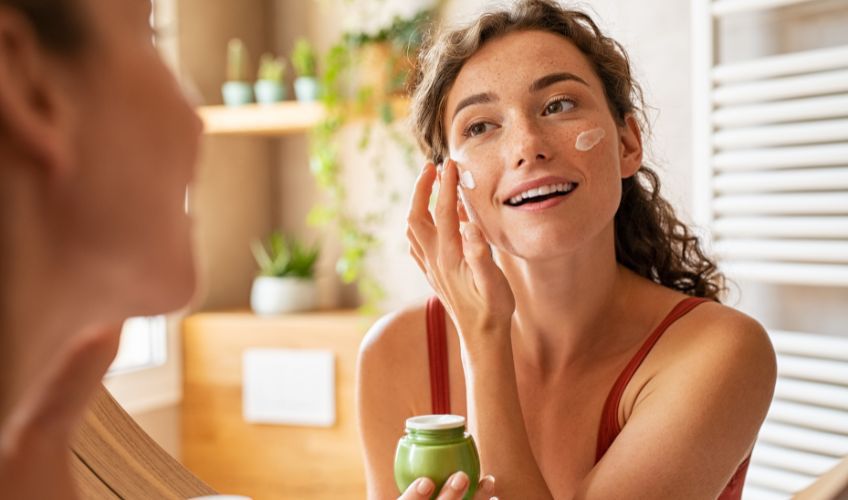It's a common misconception that moisturizers and hydrators are identical products. Nonetheless, they serve different functions and have distinct properties. Their shared objective is to maintain skin hydration and softness throughout the day.
This article provides a detailed explanation of how moisturizers and hydrators work, aiding you in deciding which is more suitable for your skincare needs.

canvaThe primary function of a moisturizer is to seal moisture within skin cells to ensure they stay hydrated. Moisturizers contain oils that help keep the skin soft by retaining sufficient moisture.
Moisturizers (1) are available in both light and heavy formulations to suit various seasons. During warmer periods, lightweight moisturizers with higher water content and less oil are preferable. Conversely, in colder weather, heavier moisturizers with ingredients like ceramides, shea butter, or oils such as almond oil are ideal.
Hydrator

canvaWater constitutes a significant part of the cells and the skin. Therefore, it is recommended to consume ample water to maintain adequate hydration levels in the body.
When cells are well-hydrated, they reflect light, imparting a bright and healthy appearance to the skin. Conversely, dehydrated skin (2) looks dull and aged because the cells shrink and lose their radiance due to a lack of moisture.
Hydrators facilitate the absorption of moisture from the environment into skin cells, helping to keep them hydrated and supple. This makes the cells appear plump and healthy. While moisturizers primarily use oils to bind water into the skin cells, hydrators rely on water as a base to achieve this plumping effect.
Hydrators use humectants, which are ingredients that attract water to the skin's surface and lock it in for extended periods. These hydrating substances are suitable for a variety of skin types as they are water-soluble and free from alcohol, ensuring they don't block pores or irritate the skin. Common humectants include hyaluronic acid, Aloe Vera, and honey. Products featuring these natural ingredients can help to plump and calm the skin.
How to Choose Between Moisturiser and Hydrator?
Both moisturizers and hydrators nourish the skin, but understanding their distinct functions and characteristics will help you choose the right product.
Several factors should influence your choice between a moisturizer and a hydrator, such as your skin type, specific skin concerns, age, hormonal influences, and environmental conditions.
Consider these points when deciding between a moisturizer and a hydrator:
When Your Skin Type Is Naturally Dry
If your skin naturally peels and produces flakes, it is likely dry and in need of a moisturizer. A moisturizer helps to prevent trans-epidermal water loss from the cells, addressing the lack of oil production in dry skin.
If your skin looks temporarily shriveled and parched, it is dehydrated. In this case, a hydrator can replenish the skin's water content, making the cells more plump and supple.
When You Have Mixed Skin Type
Skin that becomes dry in cold weather but oily in warmer conditions requires a choice between a moisturizer and a hydrator based on the weather.
When You Have Mature Skin
As skin ages, cells lose water, causing them to shrink and leading to sagging skin. Regular use of a moisturizer can help retain water in the skin.
Dry skin types might benefit from a serum or emollient cream, while those with normal skin may prefer lotions or creams to maintain softness and elasticity.
Conclusion
Even though moisturizers and hydrators are often used interchangeably, they serve different purposes. Both aim to prevent skin dryness and premature aging; however, they achieve this through different mechanisms.
Moisturizers create a protective barrier to minimize water evaporation from the skin, thus combating dryness. The optimal times to apply moisturizer and hydrator are in the morning and before bedtime. Those with sensitive or oily skin should consult a skincare specialist to prevent acne, irritation, or inflammation.
Related Articles
How Long Does It Take for Retinol to Work?
18 Best Essential Oils For Wrinkles, How To Use
